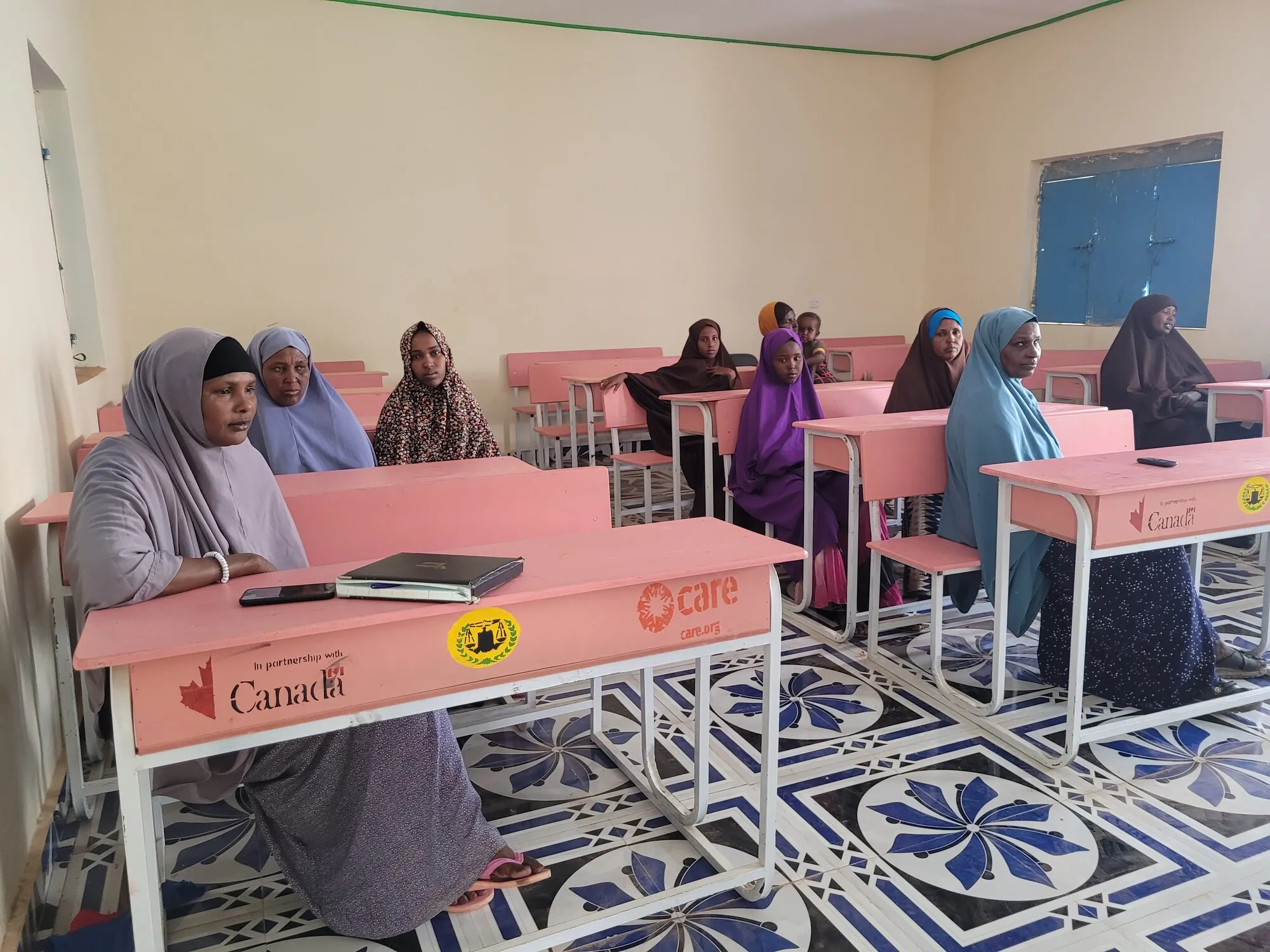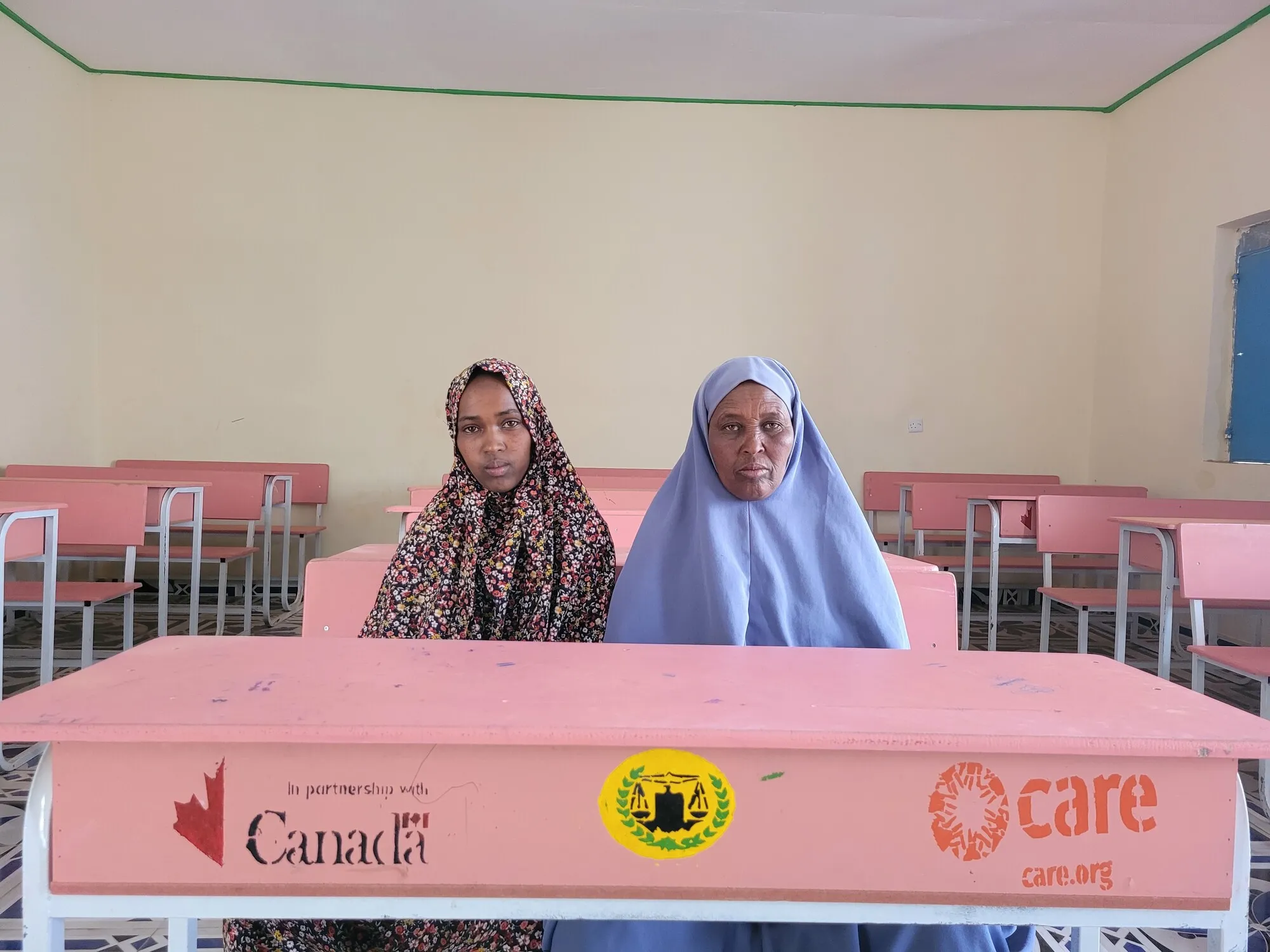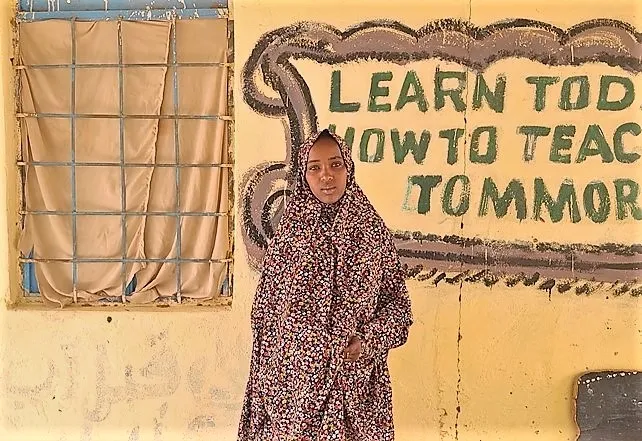“Before we moved to the town, we lived in a camp for displaced people,” Hamdi says. “Our life there was very hard. There was no water. I could not go to school and had to help my mother in the household.”
Girls such as Hamdi bear a heavy burden during periods of drought. In Somalia, one in two girls under the age of 18 is married in cases when their income is not enough for the entire family to survive. Girls are also the first to be absent from school and have to provide support in household chores, such as walking to distant water sources.
When Hamdi was ten years old, the family left the camp and came to a city.
“We had to move because we could not find anything to eat. I also wanted to send my children to school,” says Hamdi’s mother, Mariam Adam, 43.



